Instruments That Make a Difference
At Fine Science Tools (FST), we are dedicated to delivering the highest quality instruments. Some of our tools are made with special alloys and advanced features designed for specific procedures, offering both ergonomic and practical benefits for your research or protocols.
These enhancements provide excellent protection against wear, corrosion, and dulling—helping your tools remain sharp and reliable over time. With the right coating or feature, instruments can last up to 6.6 times longer than those made from standard surgical stainless steel.
For instance, our scissor cutting test shows that selecting an advanced coating or enhanced feature can significantly improve instrument durability and lifespan. We ensure every pair of our scissors delivers a smooth, clean cut—without tearing or fraying—right down to the fine tips.
See how the right choice of coating or special feature can dramatically enhance your instruments' performance:
 |
ToughCut® Scissors
- Identified by black finger rings
- Last approximately 2.3x longer than standard surgical stainless steel
- Available as ring scissors and spring scissors
- Feature two specialized cutting edges: one razor-sharp for precision, and one micro-serrated to reduce tissue slippage
|
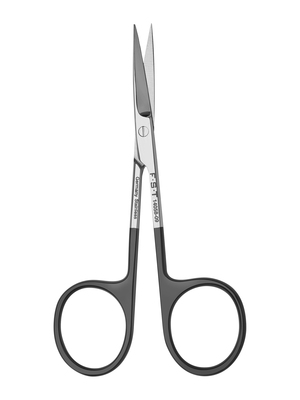
|
 |
Tungsten Carbide Instruments
- Identified by short gold-plated handles
- Last approx. 1.9x longer in cutting performance than surgical stainless steel
- Tungsten carbide is welded onto the cutting edges of scissors, tips of forceps, and jaws of needle holders
- Available instruments: bone cutters, scissors,forceps, needles, needle holders, burrs
- One of the hardest alloys available)
|
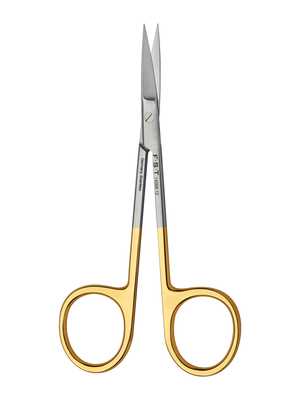 |
 |
Tungsten Carbide & ToughCut® Scissors
- Identified by long gold-plated handles
- Last approximately 4.1x longer than surgical stainless steel
- ToughCut® blades offer two cutting edges: one razor-sharp and one micro-serrated, enabling smooth, accurate cuts through tough tissue
- Reinforced with tungsten carbide for enhanced durability
|
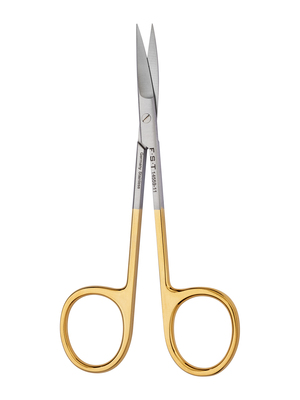 |
 |
CeramaCut® Scissors
- Combine Tungsten Carbide and ToughCut® cutting edges with a ceramic coating
- Identified by golden finger rings and a black coating
- Last approximately 6.6x longer than surgical stainless steel
- Reduced glare under the microscope
- High slide capacity of ceramic reduces surface tension for cleaner cuts
|
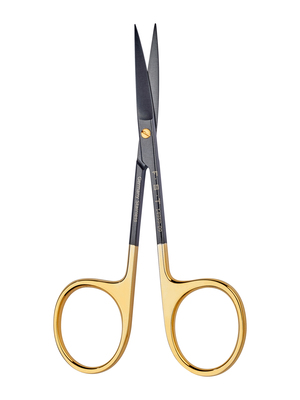 |
 |
Ceramic coated Instruments
- Identified by black coating
- Last approximately 2.3x longer than surgical stainless steel
- Reduced glare under the microscope
- High slide capacity of ceramic reduces surface tension for cleaner cuts
|
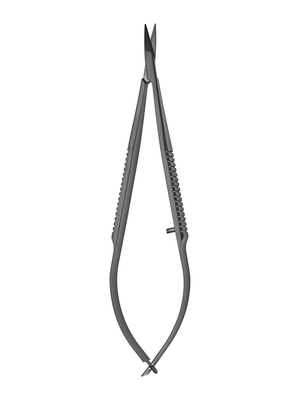 |
 |
Titanium Instruments
- Approximately 40% lighter than surgical stainless steel
- Softer alloy with excellent corrosion resistance—will not rust, even in saltwater, saline, blood, or oxidizing environments
- 100% non-magnetic
- Available as spring scissors, forceps, probes, hooks, spatulas, and vascular clamps
|
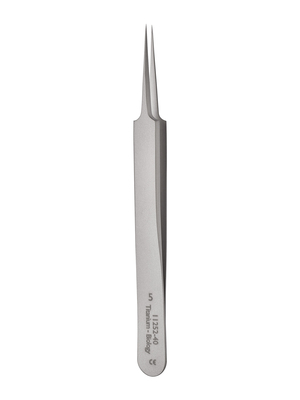 |